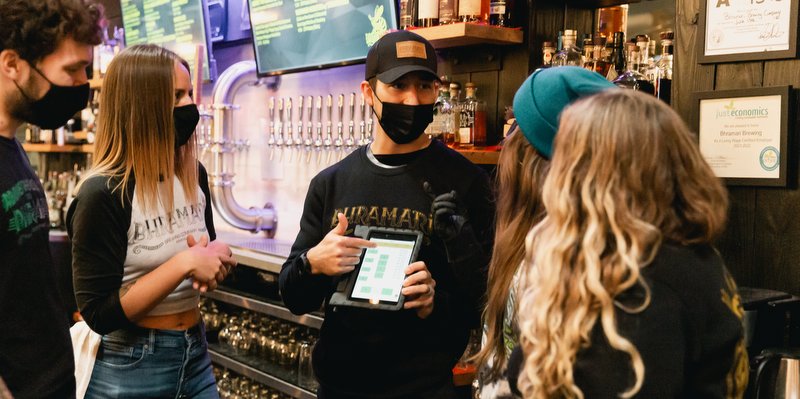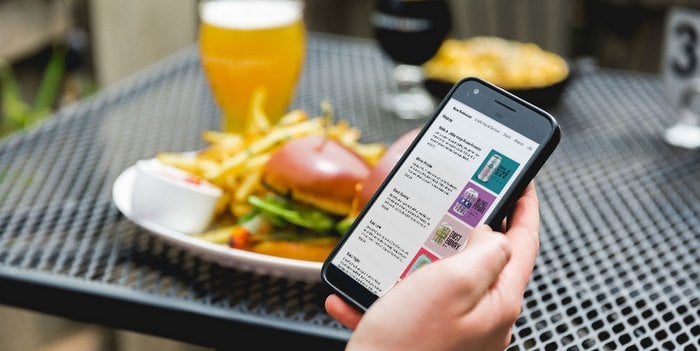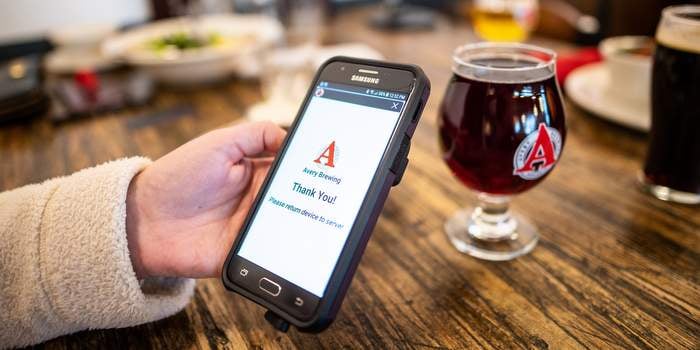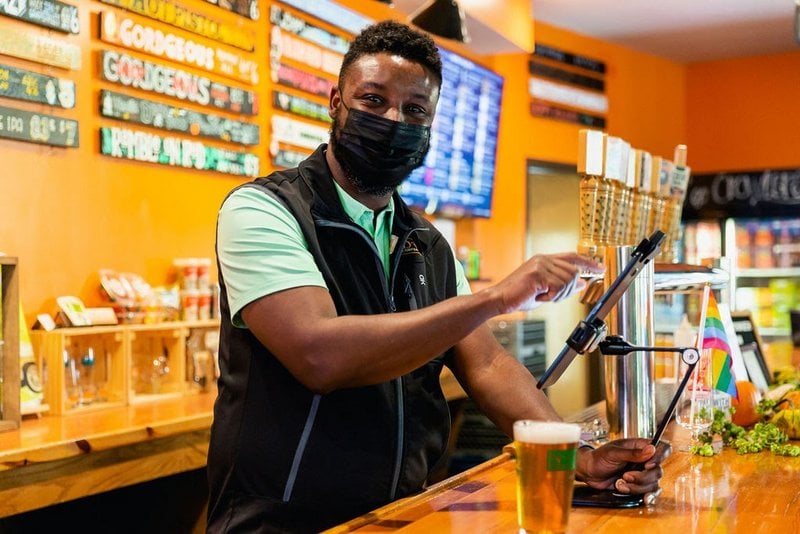
Why do people visit your taproom and/or brewpub? I know, I know, you can rattle off a ton of things like camaraderie, conversation, coziness, couches, etc. – and that’s just the C’s. All those attributes are important and true, but they are all subjective. Not every person walking in your door is always looking for any of that.
No, the true reason that every person walks in your door is to buy/drink beer. To transact. It’s such a duh thing, it is easy to gloss over while focusing on the finer points of hospitality and ambience. And yet, blips in the transactional relationship – not seeing someone who has been trying to order a beer or get their check – can undermine anyone’s good time. “Bad service,” that customer might say.
This is why Arryved CEO Loren Bendele says breweries should start to separate taproom hospitality from taproom transactions – the typical paradigm of “service.” Bendele joined Arryved in May 2021 after growing Savings.com and Teleflora, a POS for florists. His specialty is sitting in that middle ground between merchants and customers and finding ways to ease transactions while improving the rest of the experience on both sides. The goal is the same in craft beer.
“We’re focused on this thinking that hospitality is separate from service,” Bendele says. “What I mean is if you think about great hospitality, it’s when a server talks to you, they know your name, they have a relationship with you. They’re telling you about their favorite beers; they’re telling you about what food items pair best … all of the human stuff that’s the best part about hospitality.”
I would argue it can also be the opposite – knowing when a guest came in just to have a beer, chill away from home and stare at their phone or into space. I admit, I am often that customer. Point being, in either case, the extroverted and introverted customer came for the same reason.
“Once we get to the point of taking orders, flagging someone down, and dropping the check – that’s transactional. It’s less human,” he notes. “If we can make the transactional process just flow better on both sides, and we free up the server’s time for actual hospitality, I think that’s a positive thing for everybody.”
Arryved pivoted hard during the pandemic to help breweries drive and manage to-go orders. They integrated a website solution with their point of sale (POS) so customers could place “contactless” orders anywhere either on-premise or at home.
Ironically, Arryved is also adding a ton of hospitality-focused functions into what’s traditionally just a transactional tool. The end goal is providing a seamless experience for both guests and brewery staff.
“Being able to just pay through your phone and start a tab on your phone, and then just close it out on your own and have a tip automatically attached is the next step,” Bendele says. “Guests, especially younger guests, like being let into the process.”
Arryved is proving this theory too. The data coming from taprooms implementing the “guest-owned” tab philosophy – separating the hospitality relationship from the transactional relationship – shows increased sales and increased tips. The latter being the crucial measure.
“You’re just taking away that time to get that extra beer, and because we can prompt them to tip and, since sales have also gone up, they’re tipping on a higher sales volume. That was a theory going in, and that’s borne out. It depends on the implementation, and how they’re using the system, but we’re seeing roughly a 20 percent increase in sales per ticket and roughly a 20 to 25 increase in tips per server.”
To be clear, this is just an option within Arryved. If you’re not sold on this new service model with QR codes and guest control, you can stick to the tried-and-true methods. Or perhaps dabble in it with a hybrid method.
Example: Customers at tables have traditional service. Orders and payment run through the server. But over in the barrels at the bar, or maybe in the waiting area when all the tables are filled (areas where it’s difficult to provide proper service) an autonomous ordering functionality can be super handy. More orders are placed and stress is relieved for both staff and guests.
“If you want to start with the server, so you can get their advice and have that welcoming human interaction, you can do that,” Bendele says. “But then when it’s time for one more drink, or when it’s time to pay and leave, you don’t have to wait for them.”
For more new school approaches to taproom sales trends, definitely check out our webinar with Arryved 2022 Craft Brewery Trends for Sales & Growth on Wed, Mar 16, 2022, from 1 to 2 p.m. EDT. Learn from the big brains at Arryved and other breweries that shared:
• Historic sales and channels
• Projections for the coming year
• Growth opportunities




Leave a Reply
You must be logged in to post a comment.